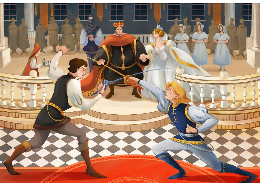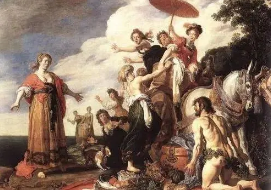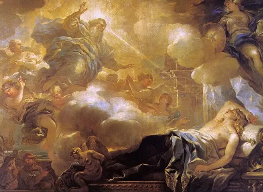Poetic Anthropology: Appreciation of Western Literary Classics
3 min read
There is a motto on the temple of Apollo in ancient Greek mythology: “Know thyself”!It just reflects the essential characteristics of the Western cultural spirit: emphasizing the value of individual people, taking people as the standard to measure everything, and constantly exploring the meaning and value of human life.Under the influence of Western cultural tradition, there is also a consistent humanistic clue in the depth of Western literature, that is, the tireless exploration of human nature and the persistent interrogation of human self and soul.
And what can we learn from Western literature?
It’s romantic childhood and ineptitude…
Or the conflict between good and evil and the redemption of the soul…
Or religious repression and sexual arousal…
Or freedom of marriage and human dignity…
Or the violence of war and humanity…
Or face the absurdity and wait for “Godot”…
Hamlet”To be or not to be, that is a question worth considering; Which is nobler, to endure the tyrannical arrows of fortune, or to rise up against the endless miseries of the world and fight them away?”
(Act III, Scene 1) This is a monologue from William Shakespeare’s tragedy Hamlet, a poem full of contemplative meaning. Facing the tragic fate and double choice, Hamlet falls into complex thinking and painful struggle.
The soliloquy comes after Hamlet discovers that his mother and uncle killed his father and that they had an affair. At this time he pain, doubt, full of doubts about life, think people live no meaning, suicide is better, but also very afraid of death, I do not know whether people will go to hell after death. So in this monologue, he hesitates, pondering whether to be or not to be.
In Hamlet, Hamlet’s attitude towards fate changes several times and even seems inconsistent. At first Hamlet thought that fate was capricious, that it would neither promote good nor punish evil, but bring disaster to noble people. Like Machiavelli, he denounced fate as a “whore” and, in one monologue, stood up against “the tyranny of fortune”.
But after a “sudden change” Hamlet switched to complete faith in providence. Given Hamlet’s initial strong dissatisfaction and anger at his fate, this sudden change is surprising.
By presenting Hamlet’s two views of fate, Shakespeare not only rejects the two extreme views of fate, but also shows the proper attitude towards it: human misfortunes are not due to any external accident, but to individual nature and choice.
Hugo once said, “Hamlet is as real as any of us, but greater than us. He was a giant, but a real man. Because Hamlet is not you, not me, but all of us. Hamlet is not a man, but a man.”
Everyone has to go through difficulties in their life. However, after constant self-denial, after countless meditation and choices, we should still have the courage to live affectionately in this heartless world.
Western literature It can be seen that inquiring into the value and meaning of one’s own life is an important feature of western literature, which is closely related to the cultural tradition on which one grows.
However, the ancient human in the field of science and technology is not developed, for many natural phenomena have no scientific cognition, so they often conclude many natural phenomena as the creation of God. Thus myth and religion were born. Among them, the greatest influence on Western literature is ancient Greek mythology and Hebrew literature, which constitute the two major sources of Western literature.






